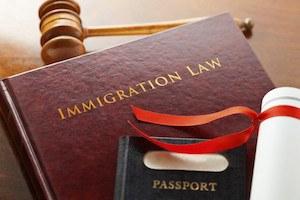REPRESENTATION
Results You Need.

After completion of college, a F-1 program, or a J-1 program, many aliens prefer to work in the United States rather than immediately return home. One lawful avenue of relief is to obtain a H-1B visa, which allows the alien to work and live in the United States for up to a total of 6 years. In a nutshell, H1-B visas are used by businesses located in the United States to obtain needed skilled, professional workers that are aliens, based upon a shortage of available United States workers to fill the open job positions. A large number of H1-B visas are in the science, technology, engineering, and mathematics (STEM) fields, however H1-Bs visas apply to a diverse variety of skilled, professional job positions outside of STEM fields.
The H-1B petitioner must prove to the satisfaction of the USCIS several strictly enforced conditions: the employment is for a “specialty occupation”, which means that the entry level educational requirement is at least a bachelor degree in fields related to the employment; the alien qualifies as a professional; and that Labor Condition Application (LCA) is certified by the United States Department of Labor. Sometimes aliens without advanced degrees are lawfully able to receive H1-B visas by substituting their work experience to compensate for the missing educational requirement. US Citizenship and Immigration Services (USCIS) reviews, processes, and adjudicates all H1-B visa petitions to make sure that all the legal requirements are met.
The US government has a strong policy to protect United States workers from alien worker competition, and to encourage the hiring of US citizens and green card holders over all others. Businesses located in the United States are prohibited from hiring cheap foreign labor that will work for less money. H1-B regulations mandate that employers pay any alien the higher of the actual (the wage paid to other workers in similar positions) or the prevailing wage (the average salary for workers in the relevant area of employment). The employer must attest that the employment of the alien will not negatively affect the working conditions and wages of similarly employed United States workers, and the employer must also notify its workers with notice of the employer’s intention to hire an H1-B worker.
Due to an “H-1B cap” (a limitation in the number of H1-B visas available), there are only a a limited number of H1-Bs that will be approved each year, which is often reached within days after the opening of the H1-B submission period. As soon as the submission period is opened, the H1-B petition must be submitted to give the alien a chance of being successful before the slots are filled by others. The number of H1-B petitions submitted exceeds the number of available H1-B visas, so an “H1-B lottery” is conducted to determine which applications will be processed, and which ones will be rejected. However, H1-B applications for aliens at non-profit organizations, research institutes, educational facilities, and hospitals are often not subject to the H1-B cap, which allows employers to petition the alien at any time during the year.
“Dual intent” is allowed for aliens who received an H1-B visa, which means that the alien can intend to remain in the United States for either a temporary or permanent length of time. Provided that an employer is willing to file an employment based green card application to sponsor the alien employee, many aliens under H1-B visas eventually seek Lawful Permanent Residency.
A respected and knowledgable immigration lawyer, such as Sufen Hilf, is recommended to handle any and all H1-B petitions for a variety of reasons: first, Immigration laws are constantly subject to modification and change, and you need someone who is up to date on changes in law and policy; second, there are a number of situations that are more heavily scrutinized (for example: third party placement; positions at lower wage levels; H1-B visa transfers; positions that have low qualification or skill requirements; students on F-1 visas and OPT seeking a H1-B visa; etc.) which should be handled by a lawyer; third, there are many technical components to filing the H1-B petition, such as correctly completing and filing the petition, accurately providing prevailing wage information, responding to a Request for Evidence, etc. that also require a competent immigration lawyer’s representation; fourth, having someone to answer questions and provide information concerning the file is an important and stress reducing part of the process. Contact Hilf & Hilf, PLC for any and all of your business and family based immigration needs.